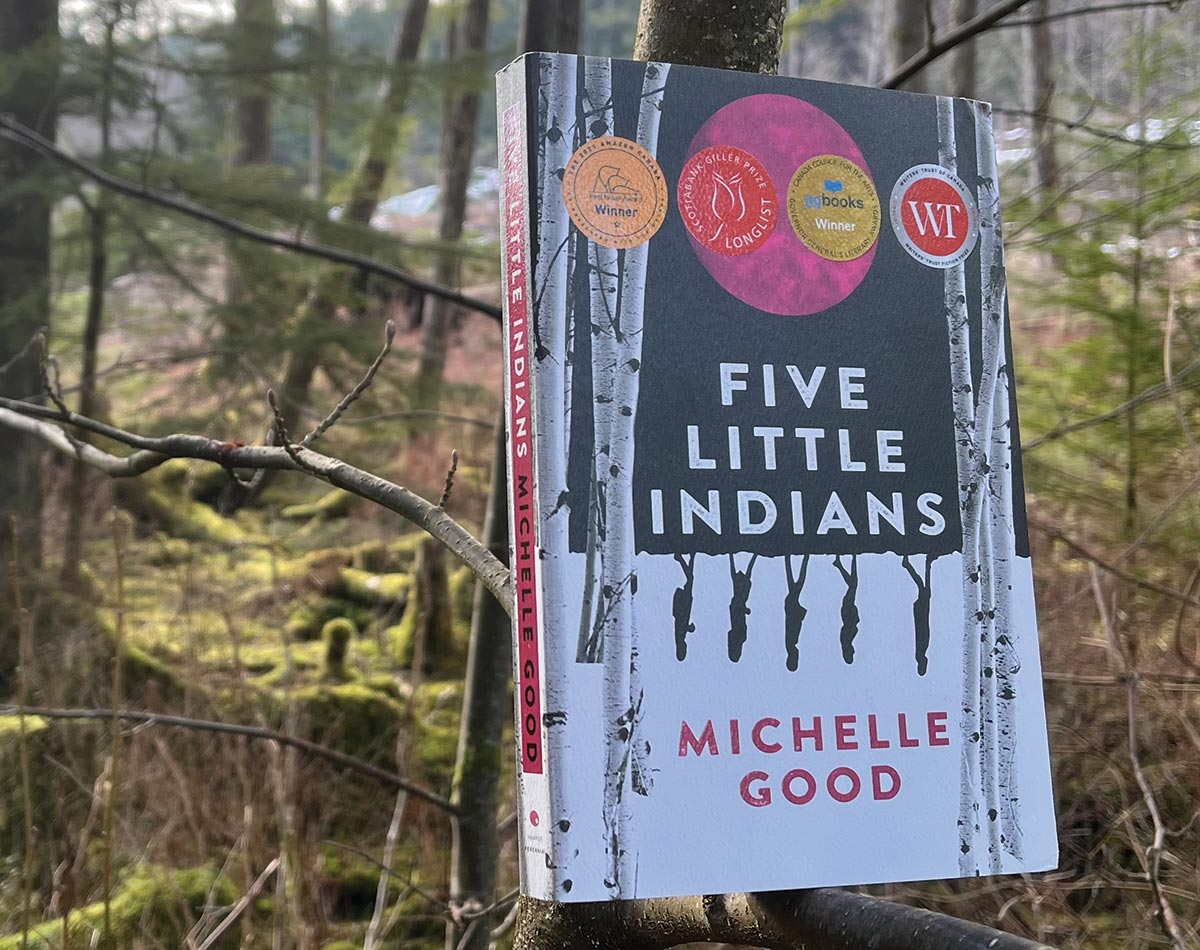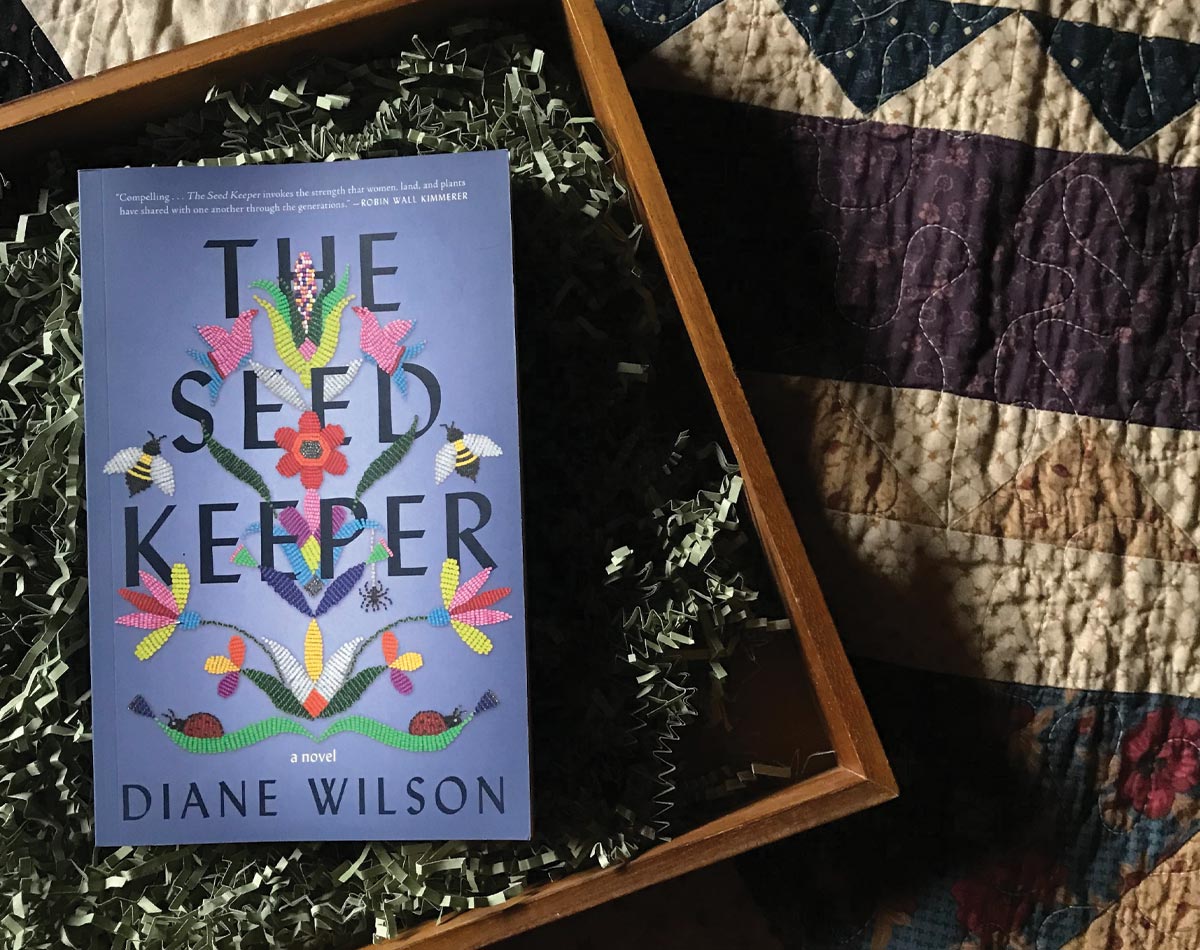Reads and Reviews
An Alaska Native reader reviews Native-written books
By Erin Tripp (Lingít)
My Heart is a Chainsaw
by Stephen Graham Jones
Reading My Heart is a Chainsaw, I can feel Stephen Graham Jones’ complete love of slasher films. In that way I could imagine he’d put a lot of himself in Jade and her encyclopedic slasher knowledge. It actually made me appreciate the genre more, and want to watch all the ones I missed growing up. During the first half of the book, I spent a lot of time wondering if it was all in her head or if there really was going to be a massacre like she said. It reminded me of Night of the Mannequins in that way. It was during the second half of the book, when we got more answers that I really got into the book and invested in what was happening.
Before the book begins, new wealthy people have moved to town and bought the land across the lake to build a community for themselves. It’s land that should not have been built on and the town keenly feels the effects of gentrification as these new people overtake their space. It evokes the ongoing effects of colonization, which links to stories about the town’s history towards Indigenous people that Jade shares. And there is a direct link from this history of colonization to the disconnect, displacement, and intergenerational trauma that has affected Jade. She self describes as a half Indian, and has no connection to a Native community beyond her abusive father, and a negative relationship with both her parents. Her way of coping is to view her life and town through the lens of a slasher film, but whether she realizes it or not she is constantly searching for connection.
There is never going to be a moment where being Native will step in and save her or become a power.
Outside of the story itself, Jones’ acknowledgement section at the end of the book is worth reading. You learn more about his process of writing the book from origins to now and how it’s grown with him as a writer. One thing that I found interesting was when he wrote “something about Jade being Native as incidental…” which reminds me of an article he wrote called “Being Indian is Not a Superpower”. I highly recommend you read it, because it is fire. Being Native is the circumstance of Jade’s life, but it hasn’t informed her strength and deep slasher knowledge. There is never going to be a moment where being Native will step in and save her or become a power. And that’s important to note and I’m grateful to Jones for always being conscious of this in his work as a Blackfeet author.
One last treat from the acknowledgement section was when Jones ends by talking about his wife and says “My heart is a chainsaw but you get it started??” which is just the cutest damn thing I’ve ever read. Which begs the question, what gets your chainsaw heart started?
Content warning: child sexual abuse, sexual assault, sexual harrassment, parental neglect, gore, blood, dismemberment, dead bodies, murder, violence, suicidal ideation, attempted suicide

Five Little Indians
by Michelle Good
Five Little Indians is a book that had been on my radar for a while before I finally read it. I was motivated to do so when it was a finalist for Canada Reads (which is a competition show that broadcasts on CBC for one week each year). It also happened to be my absolute favorite of the five books and an unsurprising win for the show!
I didn’t expect to be hit so hard with this story by the end of it, but after I closed the book for the last time I sat for five minutes and had a good cry. I was left feeling heartbroken for all the real lives lost because of residential schools and those whose lives were disconnected from their community and themselves because of it. It’s something I try not to think about a lot, because it’s very overwhelming and hurts. But I’m very appreciative of what this book accomplishes. I have come across books before about the boarding school experience, but I think this is the first book I’ve read about what happens immediately after people leave those schools. The book follows five young people and the fallout in their lives as they navigate life after residential school. I found the characters to be interesting and full of dimension, and I came to care about them pretty quickly. It made it hard to read some of the stuff that happened to them, but it also made me root for them even harder.

The Seed Keeper
by Diane Wilson
The Seed Keeper is one of those books I might have procrastinated reading (as I do with most books on my shelves), so I’m immensely grateful to have pushed myself to read it right away. The story is so engaging and heartbreaking. Wilson wrote wonderful characters full of depth that I cared for. I also appreciated the nuance within Wilson’s writing and the way she used a non-linear storytelling structure to create a full picture.
Rosalie’s journey begins after her father’s death and placement in foster care. That disconnect is carried throughout her whole life and affects her relationships with everyone around her, including her son. The book shows us the causes and direct effects of intergenerational trauma, draws the parallel between boarding schools and the foster care system, and an Indigenous worldview as it relates to seeds & the land. The story might be fictional, but the topics within are very real issues today. Especially relevant is the colonization and capitalism of seeds and farming by chemical companies. There is a disconnect from the land, no reciprocity, and it is hurting all of us.
I highly recommend this book for everyone. It’s an eye opening reading experience, covering a topic that isn’t talked about enough in the U.S.